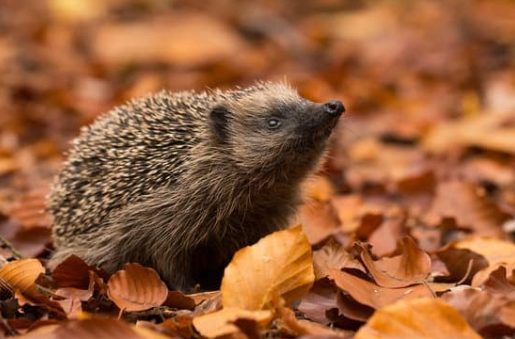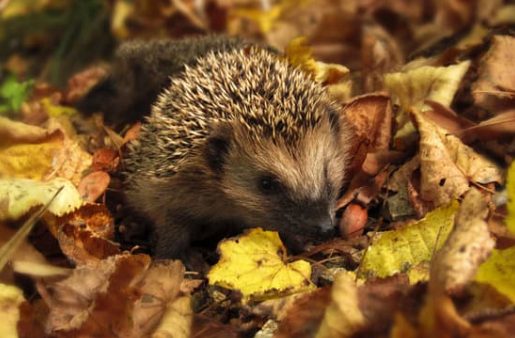Next time you reach for the strimmer to cut back long grass or areas in the garden that have grown a bit wild, STOP and take a few minutes first to check that you are not disturbing sleeping or nesting wildlife, in particular, hedgehogs.
Intelligent, cute, and loveable, hedgehogs are a welcome visitor to our gardens, but did you know they also contribute to the well-being of your garden space and its ecosystem?
In this blog, we will explain why hedgehogs are great for your garden, as well as how to protect these little garden allies and how to keep them safe.

Hedgehogs – the gardener’s great little ally
Traditionally living in woods and meadows, hedgehogs have had to adapt to living in increasingly widespread urban areas, finding refuge and nourishment in our gardens and outdoor spaces.
Nocturnal creatures, hedgehogs can cover over 3km in one night when hunting for food. Silent and discreet creatures, hedgehogs love to live among vegetation and hunt at night, contributing to the sustainable management of our green spaces.

Great for your garden’s ecosystem
Hedgehogs are insectivores which means they are the perfect ally when it comes to maintaining the balance of your garden’s ecosystem.
They love to feast on aphids, larvae, beetles, caterpillars, earwigs, millipedes, and earthworms. – helping to rid your garden of these small insects and creatures that damage the plants in our garden and cause havoc in the veggie patch!
Hedgehogs are also important for conserving biodiversity in our outdoor spaces. They provide food for other animals but more importantly, they are vital seed dispensers.
When consuming berries and other plants they digest the seeds, excreting them later in different locations. As a result, they help to spread seeds to different areas to grow new plants and are vital for such plant species that rely on animals for their propagation.
Hedgehogs are nature’s way of keeping the delicate balance of our gardens under control – in a completely natural and sustainable way.

An endangered friend
Hedgehogs are found across Europe and northwards to Scandinavia, however, despite this, hedgehog numbers are unfortunately in serious decline – especially in the UK where they now appear on the red list as at risk of extinction.
This is due to the usual factors such as environmental pollution and destruction of their natural habitats as well as the use of chemicals and intensive agriculture.
Hedgehogs tend to like to shelter and nest in long grassy areas or wild patches with brambles. They can make their homes under piles of branches or hedges.
Unlike many creatures who run away from potential danger, hedgehogs instead curl themselves into a ball of quills to protect their soft body, waiting for the danger to pass.
This unfortunately means that they are far more vulnerable to injuries or even death from gardeners carrying out maintenance work such as strimming long grass or pruning hedges.

What to do if you find an injured Hedgehog
If you find an injured hedgehog pop it carefully into a high sided box, cover it lightly and offer it just water.
Contact your nearest rescue centre as quickly as possible.
Call the Hedgehog Helpline in the UK on 01584 890 801


